- Generates cellular energy to maintain vitality
- Reduces age-related inflammation
- Detoxifies ammonia levels in cells
- Maintains DNA structure, rewinding biological age
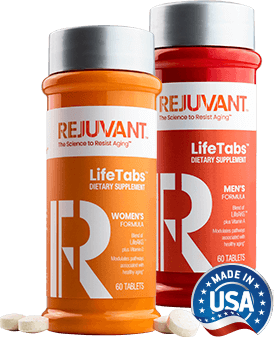
the Culmination of Twenty Years of Longevity and Anti-Aging Research
When researchers at the world-renowned Buck Institute for Research on Aging began testing the LifeAKG found in Rejuvant LifeTabs and investigated its potential benefits on the aging process, what they discovered was remarkable.
They found that LifeAKG™ demonstrated an ability to modulate both the known and newly discovered pathways associated with aging. In short, transforming the way we age for the better.
- Detoxification of age-related ammonia buildup*
- Maintenance of DNA integrity*
- Support of cellular energy production (ATP)*
- Blocks “Inflammaging", the pro-inflammatory distress signals sent by senescent or aging cells
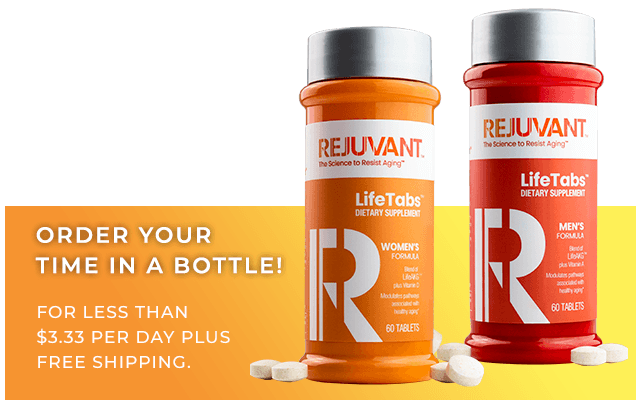
is More than Revolutionary, it’s Life Changing
The good news is that, thanks to AKG, your body is able to deal with this toxin quickly and efficiently. But unfortunately, as we age our levels of AKG drop, as does our body’s ability to neutralize this harmful substance. This is why the key ingredient in Rejuvant is called LifeAKG.
Ready to detoxify your Ammonia levels, Start Now

DNA is key to vitality by making new cells in our body, and determining how those cells will ultimately function. With age comes a process called methylation. Think of this as a kind of “rust” that coats the outer portions of your DNA. Methyl groups are chemical tags, that in effect block our DNA from doing its job when it comes to making ideal copies of itself, activating and deactivating certain genes.
The more methylation, the more difficult it is for DNA to make a perfect, readable copy of itself. This increases the chance of passing on flawed genetic information, leading to poorly functioning cells, and contributing to aging itself.
In a healthy cellular maintenance process, AKG is involved in demethylation, by cleaning up and removing these DNA tags so that the correct genes continue to be expressed. With correct levels of AKG, our DNA maintains a more balanced methylation profile, assisting cells to function at optimal levels, similar to when we are younger.
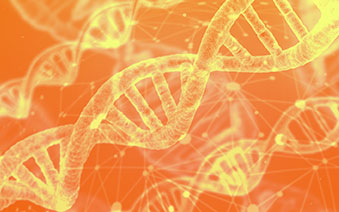
Cells are like us. They are born, they age and they die. When cells die (apoptosis) they are typically removed from our bodies in a natural process. Sometimes, however, these aging cells turn into “zombie cells” (also called Senescent Cells). These cells are unable to properly function, divide, or make room for younger, healthier cells. Worse, these zombie cells remain in our bodies, building up over time. Why is this a problem?
As these cells become zombies, they send out distress signals which lead to inflammation and oxidative stress, leading to a vicious cycle causing tissue damage and even more zombies. Scary stuff. But you can open your eyes now, because the scientists at Buck Institute demonstrated that LifeAKG™ helps block these negative signals and the troubles they can cause.
Want to address inflammation due to Senescent Cells?
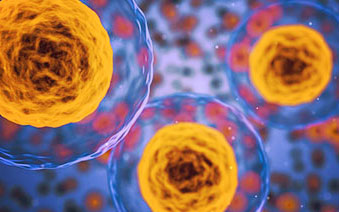
ATP is the energy powerhouse found in all living cells. Here again, our old friend AKG found in LifeAKG, plays a major role in how much ATP is produced in your body for immediate power. As a part of the Krebs Cycle, cells are literally powered by this vital nutrient.
AKG also acts like an “on-off switch,” to save energy, especially when the body is under stress. Regulating ATP production is critically important, so that in later years when we need energy the most, we have plenty of it.

If you live a healthy lifestyle with diet and exercise, and have great genetics, you statistically will have a biological age equal to or lower than your chronological age. If you have had a significant illness in your life or have not always made the best choices when it comes to lifestyle, your DNA knows that too, and your biological age could be higher.
Until recently, testing your biological was difficult due to high costs and invasive sample collection procedures. But, thanks to Rejuvant and the researchers at TruMe, we are bringing a highly affordable, simple saliva test to calculate your biological age. Simply take the test, and mail the sample to the TruMe Labs, and within a couple of weeks you will learn what your DNA says about your age. TruMe is an independent laboratory, founded by epigenetic experts who know that tracking biological age over time can lead to significant and lasting health benefits for you, once you take action.
We at Rejuvant agree. We are confident that when you establish a baseline with the at-home test, and take once-daily LifeTabs for as little as six months, the test will show your methylation levels adjusting, giving you a reading that your biological age is slowing or even reversing. In addition to how you feel when taking Rejuvant LifeTabs, this you will ultimately tell the story of how Rejuvant LifeTabs with LifeAKG is bringing about a younger you.
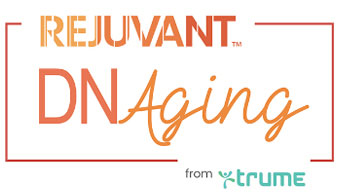

Kjellman, Ulf W., et al. "Addition of α-ketoglutarate to blood cardioplegia improves cardioprotection." The Annals of Thoracic Surgery 63.6 (1997): 1625-1633
Kjellman, Ulf, et al. "α-ketoglutarate for myocardial protection in heart surgery." The Lancet 345.8949 (1995): 552-553
Jeppsson, Anders, et al. "Renal effects of α-ketoglutarate early after coronary operations." The Annals of Thoracic Surgery 65.3 (1998): 684-690.
Zimmermann, E., S. Wassmer, and V. Steudle. "Long-term treatment with calcium-alpha-ketoglutarate corrects secondary hyperparathyroidism." Mineral and Electrolyte Metabolism22.1-3 (1996): 196-199.
Riedel, E., et al. "Calcium alpha-ketoglutarate administration to malnourished hemodialysis patients improves plasma arginine concentrations." Mineral and Electrolyte Metabolism22.1-3 (1996): 119-122.
Riedel, Eberhard, Michael Nündel, and Hannelore Hampl. "α-Ketoglutarate application in hemodialysis patients improves amino acid metabolism." Nephron 74.2 (1996): 261-265.
Birck, Rainer, et al. "Calcium ketoglutarate versus calcium acetate for treatment of hyperphosphataemia in patients on maintenance haemodialysis: a cross-over study." Nephrology, Dialysis, Transplantation: Official Publication of the European Dialysis and Transplant Association-European Renal Association 14.6 (1999): 1475-1479.
Filip, et al. "Alpha-ketoglutarate decreases serum levels of C-terminal cross-linking telopeptide of type I collagen (CTX) in postmenopausal women with osteopenia: six-month study." International Journal for Vitamin and Nutrition Research 77.2 (2007): 89-97.
Wernerman, J., F. Hammarqvist, and E. Vinnars. "α-Ketoglutarate and postoperative muscle catabolism." The Lancet 335.8691 (1990): 701-703.
Wirén, Mikael, Johan Permert, and J. örgen Larsson. "α-ketoglutarate–supplemented enteral nutrition: effects on postoperative nitrogen balance and muscle catabolism." Nutrition 18.9 (2002): 725-728.
Mittal, Gaurav, et al. "Radiolabeling and dose fixation study of oral alpha-ketoglutarate as a cyanide antidote in healthy human volunteers." Clinical Toxicology 48.6 (2010): 509-515.
Bro, Susanne, et al. "Randomized crossover study comparing the phosphate-binding efficacy of calcium ketoglutarate versus calcium carbonate in patients on chronic hemodialysis." American Journal of Kidney Diseases 31.2 (1998): 257-262.
Blomqvist, Britt I., et al. "Glutamine and α-ketoglutarate prevent the decrease in muscle free glutamine concentration and influence protein synthesis after total hip replacement." Metabolism 44.9 (1995): 1215-1222.
Hammarqvist, F., J. Wernerman, and E. Vinnars. "Alpha-ketoglutarate preserves protein synthesis and free glutamine in skeletal muscle after surgery." Surgery 109.1 (1991): 28-36.
Click Here to Download Additional Peer Reviewed Studies
